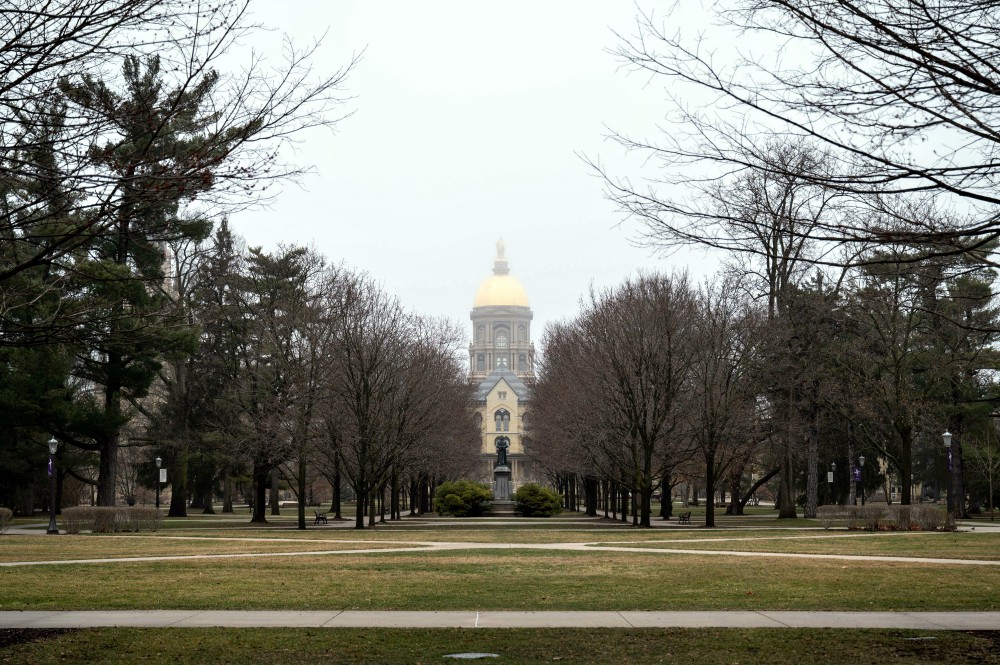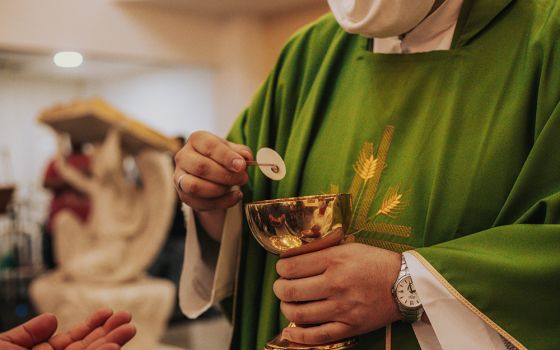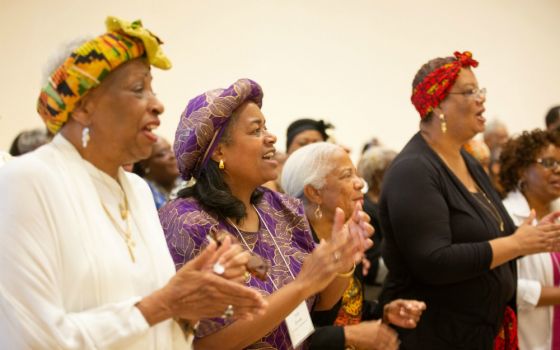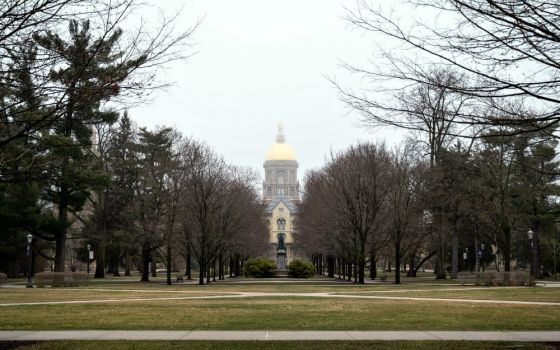
The University of Notre Dame campus in South Bend, Indiana, is seen March 19. (CNS/USA TODAY NETWORK NCAA via Reuters/Matt Cashore)
Those looking for hope about the safety of in-person education during the ongoing coronavirus pandemic surely won't find it in the alarming reports coming from colleges across the country in recent days.
One by one, institutions that brought students back to campus are preparing to send them home again after experiencing extreme COVID-19 outbreaks.
University of North Carolina-Chapel Hill moved all classes online Aug. 19, only a week after they had begun, following at least 324 cases. About 160 people have tested positive at the University of Kentucky. In Mississippi, state health officials are investigating outbreaks at two universities.
We would need to write at great length to detail every institution impacted. Reading the signs of the times, Michigan State University scrapped its plans for students to come back, announcing that classes will now only take place virtually when they recommence Sept. 2.
But the news from the University of Notre Dame, whose very name has long been synonymous with the gold standard in Catholic higher education, is particularly disturbing.
Eight days after classes began Aug. 10, university president Holy Cross Fr. John Jenkins announced Aug. 18 that students would be remaining on campus but moving to online classes for at least a two-week period, following a sharp and drastic uptick in COVID cases.
The university reported 222 confirmed cases Aug. 20. Of the 355 tests conducted Aug. 18, 73 came back positive — representing an astonishing 20.56% positivity rate among those tested that day.
Reports from students on campus who have tested positive will cut at the heart of any parent. Local CBS affiliate WSBT 22 spoke to one young woman, who said after waking up with a 101-degree fever one day she had to repeatedly call the campus hotline for hours before being able to schedule a COVID-19 test.
After testing positive, the woman said she was placed in a special quarantined apartment complex — where she waited six more hours for food to be delivered to her.
Advertisement
The South Bend Tribune reported Aug. 18 that Notre Dame had issued a statement to the paper acknowledging that it had not been prepared for the spike in cases and that some students in quarantine "were not cared for as promptly or as thoroughly as we would have hoped."
Nearly 700 Notre Dame faculty, former faculty, students and alumni have now signed a petition calling on Jenkins to allow students to go home and finish the semester virtually. They say care for those sick on campus is "severely lacking," and testing procedures are "woefully inadequate."
Jenkins, who has led Notre Dame since 2004, was in the vanguard of college presidents who decided to reopen their campuses during the pandemic. In a May New York Times op-ed explaining his decision, the Holy Cross priest framed it as a risk-reward scenario.
After promising that the university would "institute extensive protocols for testing; contact tracing and quarantining," Jenkins said: "We believe the good of educating students and continuing vital research is very much worth the remaining risk."
Inherent at the heart of the strategy was a gamble, with the highest of stakes.
As we said a few weeks ago, Catholic schools should be modeling pro-life values that put people's health, safety and lives first as they discuss whether and how to reopen.
While we do not pretend to have all the answers for how institutions of higher learning should act in this unprecedented time, especially when financial challenges may threaten some schools' very existence, we continue to worry about putting teachers, staff and students on the pandemic's front lines.
The some 260 Catholic colleges and universities in the U.S might well look at Notre Dame's example, along with the others now re-closing their campuses, and proceed with due caution.






